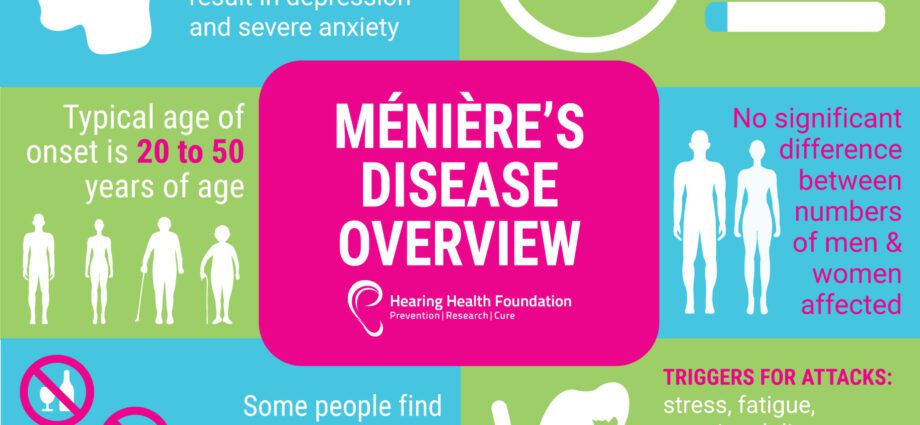Contents
Prevention of Ménière’s disease
Can we prevent? |
Since the cause of Ménière’s disease is not known, there is currently no way to prevent it.
|
Measures to reduce the intensity and number of seizures |
pharmaceuticals Certain medications prescribed by the doctor reduce the pressure in the inner ear. These include diuretic drugs, which cause increased elimination of fluids through the urine. Examples are furosemide, amiloride and hydrochlorothiazide (Diazide®). It seems that the combination of diuretic drugs and a diet low in salt (see below) is often effective in reducing dizziness. However, it would have less effect on hearing loss and tinnitus. Vasodilator drugs, which work to increase the opening of blood vessels, are sometimes helpful, such as betahistine (Serc® in Canada, Lectil in France). Betahistine is widely used in people with Ménière’s disease because it works specifically on the cochlea and is effective against dizziness. Notes. People who take diuretics lose water and minerals, such as potassium. At the Mayo Clinic, it is recommended that you include foods high in potassium, such as cantaloupe, orange juice and bananas, in your diet, which are good sources. See the Potassium sheet for more information. Food Very few clinical studies have measured the effectiveness of the following measures in preventing seizures and reducing their intensity. However, according to the testimonies of doctors and people with the disease, they seem to be of great help to many.
Way of life
|










